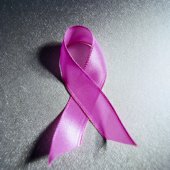
WEDNESDAY, Jan. 9 (HealthDay News) — The risks of breast and colon cancer screening likely outweigh the benefits for people with a life expectancy of less than 10 years, according to a new study.
However, the researchers emphasized that the results should not be used to deny screening for patients with a shorter life expectancy, but rather to help doctors and patients make informed decisions about screening.
For the study, Sei Lee, assistant professor of medicine in the division of geriatrics at University of California, San Francisco, and colleagues analyzed the findings of five breast cancer and four colon cancer screening trials involving patients aged 50 and older. The studies were published between 1986 and 2008 and ranged in size from a little less than 40,000 people to more than 150,000 people. Follow-up of patients ranged from eight to 20 years.
Over five years, an average of 2.8 colon cancer deaths were prevented for every 10,000 people screened. However, this benefit increased with longer follow-up. Over 15 years, 23 colon cancer deaths were prevented for every 10,000 people screened, the investigators found.
In addition, the researchers found that over five years, an average of 5.1 breast cancer deaths were prevented for every 10,000 women screened. Over 15 years, 19 breast cancer deaths were prevented for every 10,000 women screened, they noted.
According to the study, published online Jan. 8 in the BMJ, it took an average of 4.8 years to prevent one colon cancer death for every 5,000 people screened and 10.3 years to prevent one death for every 1,000 people screened. It took an average of three years to prevent one breast cancer death for every 5,000 women screened and 10.7 years to prevent one death for every 1,000 women screened.
Based on their findings, the study authors suggest that people with a life expectancy of more than 10 years should be encouraged to undergo colon and breast cancer screening, while those with a life expectancy of three to five years “probably should be discouraged from screening since the potential risks likely outweigh the very small probability of benefit.”
Those risks include false positive results, which might lead to unnecessary treatment, Lee and colleagues said in a journal news release.
More information
The U.S. National Cancer Institute has more about cancer screening.

